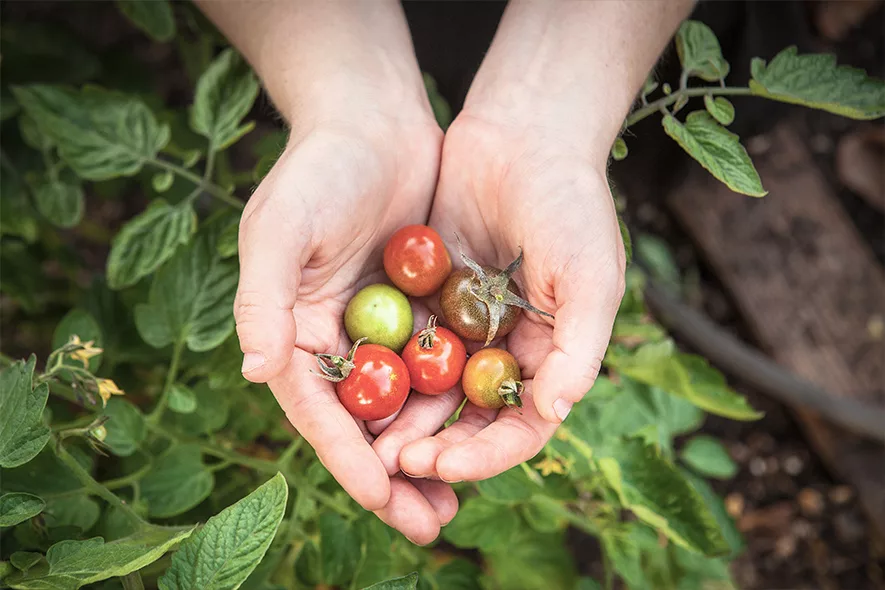Powerful health tips to help change your life!
Sign up to our health and wellness newsletter and receive a FREE health tips e-book to help you live your best life.
Are you struggling with your weight loss journey? Well, take a look at your portion sizes. Portion control is an essential aspect of achieving your weight loss goal. Most of us eat far more than we require just because it is there in front of us. The idea is to know what your body needs and learn to just eat to that level.
By controlling and correctly portioning the amount of food we put into our bodies, we can control how much of the food will be stored as fat. If we are in calorie deficit, meaning eating less than what our body requires, our body can use the stored fat for energy, leading to weight loss to a certain point. The more stored fat that your body burns, the more weight you can lose, which is why it is important to maintain a balanced healthy diet when using portion control.
Below are a few aspects to consider when utilising portion control, it’s not always what is in front of you, but about your mindset and beliefs too!

Rather than using your normal plate for dinner, try using a smaller one, which will make it look like you have more food on your plate, it may be an obvious one, but it really can help. The same with cutlery, use smaller spoons and forks, which will mean you are taking longer to eat, which will mean you will feel fuller quicker.
When it comes to serving your meal, serve straight onto your plate rather than putting food into separate dishes onto the table. This way, you know exactly what you are eating and putting leftovers straight into a portion-controlled container for the next day.
Another way to measure your portions is to use your hands.
This is a great way to control the amount of which food groups you are consuming.

The key to portion control is to be more intuitive with foods and be mindful.
Make sure you aim to eat at the same time every day, to keep your body in a routine. Try to eat your meals at a table, which we all know can be hard at times, as many of us live a busy hectic life and often eat on the go. The more we can practice mindful eating, the better we will feel and be!
Remember to eat slowly and chew your food well. A reason why we tend to eat too much is that we don’t pay attention to how much we are eating, and the speed we are eating. If we eat too fast, we will often overeat and not feel totally satisfied. Try to chew each bite around 15 times and take small bites.
The message from your stomach to your brain that notifies you that you are full can take around 20 minutes. Your stomach has 2 receptors, one for fullness and the other for nutrient density. If you are eating food that has no nutrients, your body may drive you to eat more, to try and find the nutrients it needs. So eating well in the first place, won’t cause you to binge eat or eat more than you need.
It can be hard not to turn to food at times when feeling down or stressed. Often many of us eat for a variety of reasons, whether that be to comfort ourselves, eating out of boredom, stress eating or eating to punish ourselves, just ask yourself why are you eating?
Use the right language when talking about yourself and food. Stop using language such as ” I am either going to be really good or really bad”. Instead, choose to say “I prefer to pick delicious healthy foods”.
The appetite control hormones Ghrelin and Leptin, are negatively affected by; stress, poor sleep, too many carbohydrates/sugar and overeating. So making sure that these are all watched and controlled is vital to make sure these are at a constant level and do not spike.
When it comes to choosing which foods to eat, avoid eating high carbohydrate foods, which convert to sugar in the body. This then creates blood sugar spikes and crashes, which release insulin and cortisol, which are both weight gaining hormones, especially around the stomach. Find out more about how eating can impact bloating here.
The combination of proteins, healthy fats and a small amount of complex carbohydrates, will stop your blood sugar from spiking and crashing and will help you to feel fuller for longer.
Starting your weight loss journey while you are surrounded by temptations can be hard! Make sure to remove all trigger foods, such as biscuits, alcohol and crisps.
Swap coffee and teas for herbal teas instead. Don’t give in to those special 2 for 1 offers or jumbo packs, which you just don’t need! These will tempt you to eat more than you actually need, just because they are on offer!
Many people find it easier to be more disciplined when ordering groceries online so they avoid those in-store offers.
What is your relationship with food telling you about your relationship with yourself? Are you using food to reward, punish or comfort yourself? When you think about these aspects you can see what you need to change so that you don’t emotionally eat. Values and beliefs play an important role in controlling portion size and all change begins from a place of awareness.
If you are struggling with your weight loss journey, we offer a variety of packages that can help you get back on track, whether that be for a weekend or longer we can help you get to where you need to be. For more information take a look at our packages here. If you don’t have time for a visit, why not try out Homefield Grange at Home detox box.
T. 01536 712 219 (9am-5.30pm)
E. enquiries@homefieldgrange.co.uk

Live life well
Sign up to our health and wellness newsletter and receive a FREE health tips e-book to help you live your best life.